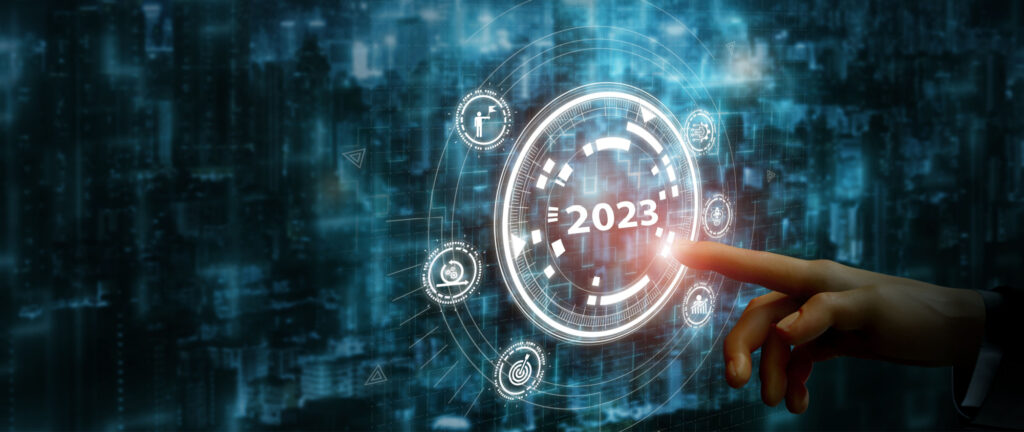Introduction
The world of technology is advancing at an unprecedented pace, and at the heart of this progress lies the art of coding. Behind every digital innovation, from smartphone apps to complex artificial intelligence systems, is a foundation of meticulously crafted code. In this blog post, we’ll take a journey into the future to explore how coding is shaping the technological marvels that await us, from quantum computing to augmented reality, and how it’s revolutionizing industries and our daily lives.
The Code that Powers Progress
1. The Language of Machines
- Defining Code: Coding involves creating instructions that computers understand to perform specific tasks.
- Coding Languages: From Python to JavaScript, different languages cater to various applications and industries.
2. Catalyzing Innovation
- Digital Transformation: Code drives the digital transformation of industries, enhancing efficiency and accessibility.
- Innovation Ecosystem: Coding empowers developers to bring innovative ideas to life, from startups to large enterprises.
Technological Marvels of Tomorrow
1. Quantum Computing
- Supercharged Processing: Quantum computers harness quantum mechanics to solve complex problems exponentially faster than classical computers.
- Revolutionizing Industries: Quantum computing has applications in cryptography, drug discovery, and optimization problems.
2. Artificial Intelligence and Machine Learning
- Cognitive Computing: AI mimics human cognitive functions, enabling machines to learn from data and make decisions.
- Personalized Experiences: AI powers personalized recommendations and chatbots, transforming customer experiences.
3. Augmented and Virtual Reality
- Immersive Environments: AR overlays digital content onto the real world, while VR creates entirely virtual experiences.
- Applications Across Industries: AR and VR have applications in gaming, education, healthcare, and real estate.
4. Internet of Things (IoT) Advancements
- Connected Ecosystems: IoT connects devices, enabling data exchange and remote control for various applications.
- Smart Cities: IoT contributes to creating smart cities with efficient energy use and optimized services.
Coding in Industry Evolution
1. Healthcare and Biotechnology
- Medical Diagnostics: Code powers medical imaging analysis and diagnostic algorithms, aiding accurate disease detection.
- Drug Discovery: AI-driven algorithms predict drug interactions and identify potential treatments.
2. Finance and Fintech
- Algorithmic Trading: Coding enables complex trading algorithms that analyze market trends and execute trades.
- Digital Payments: Fintech solutions use coding to facilitate secure digital payments and transactions.
3. Energy and Sustainability
- Renewable Energy: Code is essential for optimizing the performance of renewable energy sources like solar and wind.
- Energy Management: Smart grids and sensors enhance energy efficiency through real-time data analysis.
Coding’s Role in Building the Future
1. Education and Skill Development
- Coding Literacy: Teaching coding equips students with problem-solving skills and prepares them for a tech-driven future.
- Upskilling Workforce: Continuous learning of coding languages enhances employability across industries.
2. Bridging the Digital Divide
- Access to Technology: Empowering underserved communities with coding education narrows the digital divide.
- Global Collaboration: Coding fosters international collaboration, sharing knowledge and solutions.
Coding Ethics and Challenges
1. Ethical AI Development
- Bias Mitigation: Ensuring fairness in AI algorithms and preventing biases is a critical ethical consideration.
- Transparency and Accountability: Ethical coding demands transparency in data usage and decision-making processes.
2. Security and Privacy
- Cybersecurity: Code secures digital infrastructure and protects data from cyber threats.
- Privacy Protection: Ethical coding practices prioritize protecting user data and privacy.
Coding the Future: A Shared Responsibility
1. Collaborative Innovation
- Open Source: Collaborative coding communities create open-source projects that drive innovation.
- Hackathons and Challenges: Events encourage developers to work together on coding solutions to real-world problems.
2. Empowering Creativity
- Diverse Perspectives: The coding landscape benefits from diverse voices, fostering creativity and holistic solutions.
- Coding Art and Expression: Code can be a medium for artistic expression, creating interactive installations and digital art.
Conclusion: Scripting Tomorrow’s Wonders
Coding is the language that speaks to the future, unlocking the potential of technology to transform our world. From quantum computing to augmented reality, the marvels of tomorrow are being coded into existence today. As we navigate the ethical considerations, challenges, and boundless opportunities that coding presents, let us recognize that the future is not merely written in lines of code—it’s a collaborative effort that requires the fusion of human creativity, innovation, and ethical consciousness. With every keystroke, we’re scripting a world that reflects the limitless imagination of human ingenuity, and in this journey, coding is our compass guiding us to the horizon of technological wonder.




